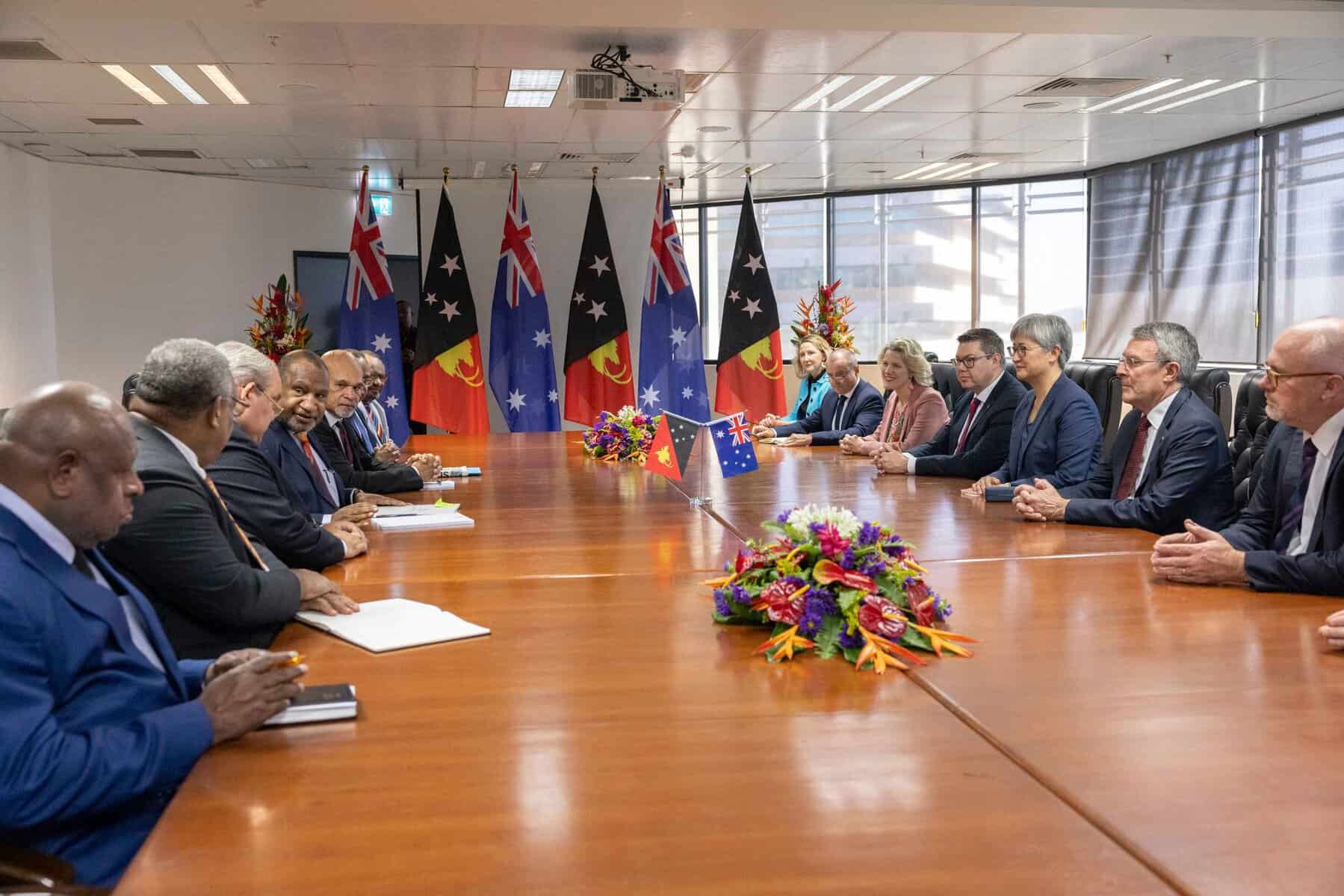The Albanese government will strike a new funding deal with Papua New Guinea to support asylum seekers after the country threatened to send them back to Australia unless a fresh agreement was signed.
In December 2021 the Morrison government struck a secret deal for about 75 refugees and asylum seekers to stay in Port Moresby after the regional processing centre at Manus Island was closed.
But when funding was fully spent in the first six months after the deal, PNG’s chief migration officer, Stanis Hulahau, accused Australia of abandoning them and threatened to “shut the program and send the refugees back to Australia”.
The Australian government has previously said it has no responsibility for the welfare of the asylum seekers and refugees it sent to PNG, most in 2013 and 2014.
Government regulations tabled on Tuesday reveal Australia will now provide “further capability support and funding … to PNG to assist its continued independent management and resolution of the residual caseload” of people transferred to PNG prior to 01 January 2022.
“PNG is establishing a sustainable settlement framework to support the residual caseload integrate into the PNG community, either permanently or temporarily pending other durable migration outcome,” the explanatory statement said.
The amount of funding in the original and the new deal is confidential, the statement said, because the government claims disclosure could “cause significant damage” to the Australia-PNG bilateral relationship.
Both deals require PNG not to send refugees and asylum seekers back to danger. Funding comes from the home affairs department’s budget for offshore management of unauthorised maritime arrivals, which was $477.7m (US$320.58 million) in 2023-24.
“Further support to PNG will be provided under a variation to the independent management arrangement,” an explanatory statement said. It said “extensive consultation” had already occurred between Australia and PNG, with further consultation before the new deal is signed by a home affairs official.
A spokesperson for the home affairs minister, Clare O’Neil, said: “The details of any support being provided to PNG are confidential, as they were under the previous government, who ended our regional processing arrangement.”
O’Neil travelled to PNG in mid-June as part of a delegation of ministers meeting their counterparts.
The refugees and asylum seekers who benefit from the deal were formerly detained at Australia’s detention centre on Manus Island before it was ruled unlawful by PNG’s supreme court in 2016, which ordered the centre to close.
About 70 refugees and asylum seekers forcibly sent by Australia to PNG remain in the country. Many have been told they face eviction because the bills at their places of accommodation have not been paid since 2022.
Port Moresby’s Pacific international hospital claims it is owed nearly $40m (US$26 million), while a number of other service providers, including security firms and motels across the capital, are owed between $6m (US$4 million) and $8m (US$5.3 million) each.
When the Greens probed the issue at Senate estimates in May, home affairs officials said the original deal was “a finite, confidential agreement with PNG to help support their transition to their full, independent management”.
The home affairs departmental secretary, Stephanie Foster, confirmed that Australia was in discussions with PNG “to understand what their challenges were and what they might need to move forward” but denied that PNG had made a “claim” against Australia.
The Greens immigration spokesperson, David Shoebridge, said the secrecy behind the deal was “staggering”, with Labor “providing an undisclosed amount of public funds to PNG to hold refugees that sought asylum here over a decade ago”.
“Let’s make this very clear, the only reason the government provided this funding is because PNG rightfully sees this whole arrangement as condescending and unfair … and refugees are in a life-or-death situation,” he told Guardian Australia. “The obvious response is to bring those refugees here and give them the care they need.”
